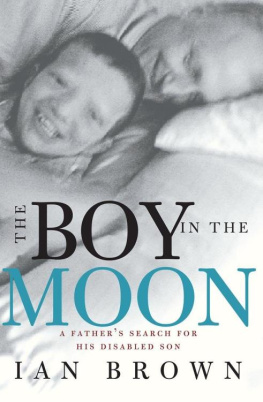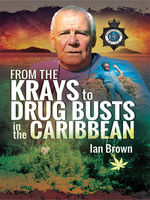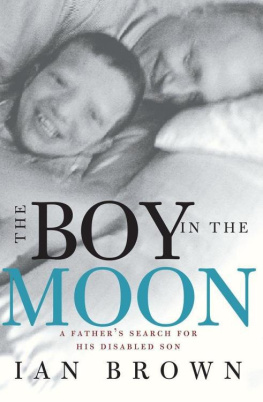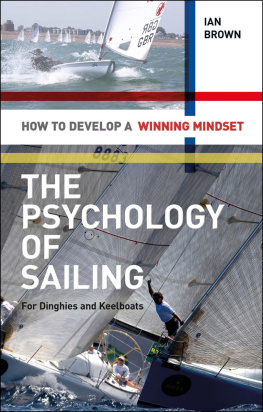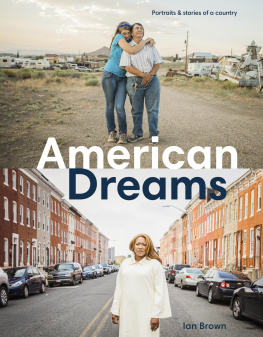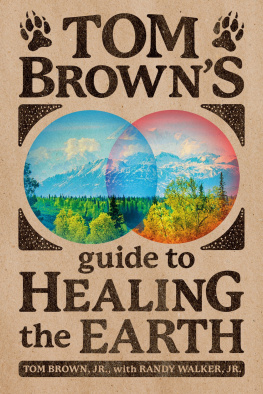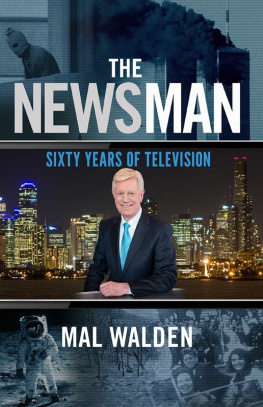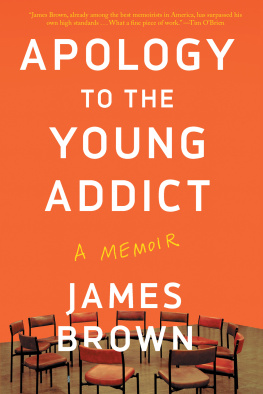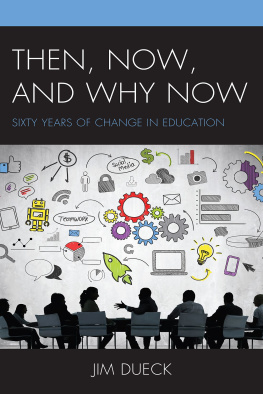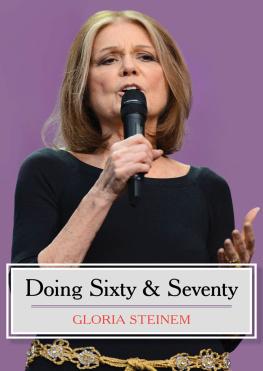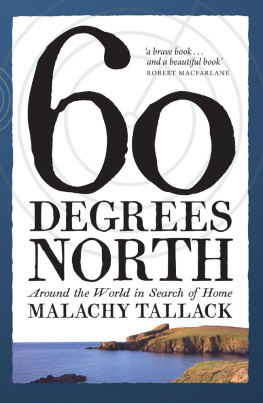This book is dedicated to my brother,
Timothy Giles Brown, who is not as old as I am.

But it is never over,
Nothing ends until we want it to.
Look, in shattered midnights,
On black ice, under silver trees,
We are still dancing, dancing.
G wendolyn M ac E wen , Late Song
PREFACE
In 2004, when I turned fifty, I mentioned to a friend that I thought there was a book in the subject: that reaching what another pal optimistically called the halfway point entailed not just changes in the way I lived but changes in the way I looked at my life. I had spent fifty years looking forward, up the oncoming road, and suddenly I was just as interested in where Id been. This did not feel like a victory. Then the busy details of family and professional life closed around me, and I put the notionnot just the book, but the very idea that I was in fact getting olderaside.
A few years later, in my late fifties, when I could no longer pretend I wasnt heading into the last turn, or for the back nine, or toward the clubhouse (someone should make a list of all the euphemisms we employ to denote the onset of aging)after another cough that wouldnt go away, after the onset of the existential angst that seemed to set in after fifty-five, and especially after my parents diedI realized that I had forgotten the instances that made turning fifty feel unique. I resolved that I would not let the details slip away again, and decided to keep a diary of the year I turned sixty, from that birthday to the next. After all, as Kafka observed, one advantage in keeping a diary is that you become aware with reassuring clarity of the changes which you constantly suffer.
Alas, you also become aware of how hard it is to keep an honest, interesting, readable (to say nothing of publishable) diary. Its quite a lot of work, and its hard to keep up, especially if you have a job, a life, and the discipline of a mayfly. The task also poses a recurring question, one I asked myself every day: what on earth would make someone think the life of a sixty-year-old middle-class journalist and husband and father in Toronto (of all places) was worth writing, much less reading, about? The answer was always the same: because I could find no satisfying record of anyone having done it before. Im not referring to the countless newspaper columns and ranks of self-help books (some of them huge commercial successes) that celebrate seniorhood and try to reinvent aging as a new and ever-younger future. That kind of writing mostly made me want to run shrieking from the room. But original, truthful, sad but amused, authentic writing on the subject of getting older, is in quite short supply; its a subject we dont care to think about when were younger and cant bear to face when were older. Gerontology (the sociology, psychology, and biology of aging) and geriatrics (the medical care of the aging) are booming fields of study, and there is a small but growing cadre of writers and scholarsmostly women, many of whom have spent their lives studying literaturenow exploring the culture of aging and growing older. But those are still nascent movements. Up in the stacks of the Robarts Library at the University of Toronto, where entire floors are devoted to books about a single subject, I found but half an aisle of shelves (about twenty feet, and on only one side of the aisle at that) devoted to books about aging. The process of getting older, after all, as a young writer and academic named Amelia DeFalco first pointed out to me, is the process of becoming the Otherthe unknown entity that we all fear, the ever-dying double that lives inside us, that we ignore for as long as we can, until we finally cant. Modern Western society still treats the aging and the aged the same way it has treated the disabled, women, and other thus-designated outliers: by pretending they dont exist. The irony of our insensitivity toward the elderly is that aging happens to every one of us; were all getting older every single moment of our lives, from the moment we are born, though we spend most of our energy (commercial and otherwise) devising ways to pretend that its not happening.
I admit that so far, I am the luckiest of sixty-year-olds. My health is steady, my mind is more or less intact, I can see and mostly hear, I am not in pain. I am not alone. I have hardly anything to complain about. And yet I, we, all of us, grow older anyway, and we feel it, even as we deny it. I thought it might be an interesting experiment to stare in the face of that denial, and keep track, at even the most mundane daily level, of the train coming straight at us.
Toronto, June 27, 2015
FEBRUARY 4, 2014
Im sixty today. My Facebook page (Facebook is celebrating its tenth anniversary) is full of kind wishes from Facebook friends, that is, from people I know, sometimes well, but also from people I dont know at all. Im not sure how I feel about Facebook friends, but thank you all for the birthday wishes. I begin my sixty-first year underslept, with a brewing chest infection, and to be frank I am not looking forward to the daystanding as I am on the threshold of the no mans land beyond sixty. Sixty! I meanif youll pardon the expressionfuck me dead! How did I get to be this old? The answer is by not paying attention.
Downstairs, I discover that Johanna, my wife, has left a card on the kitchen table. It contains two photographs of me walking my daughter, Hayley, in her stroller in Los Angeles, when Hayley was an infant and I was... thirty-nine? Forty? And of course, we all know what that looks like: it looks thinner. Your hair is ill-advised, but you have so much more of it you dont really care. At forty, I looked like someone who thought he was twenty-one.
And just like that, standing there in the darkened kitchen at sixty, having been that sort of personthe kind who thought he was twenty-one when he was fortystrikes me as a terrible error. O you fool, I think, you did not realize upon what quiet foot The End approacheth. (My mental cadence takes on the rhythms of the Book of Common Prayer when I get anxious.) I mean, its easy to forget, amid the pleasures and terrors and gentle draining sounds of everyday life, how it all goes by much too fast. Even if you pay attention all the timeand who, really, manages to do that?
And then, inevitably, the litany of my failures rushes into the vacuum left by all that speeding timeexcept that now, at sixty, those failures seem especially irreversible: not enough money, no retirement possibilities, no lush vacation home, no fast cars, no novels or plays or Broadway musicals or HBO series written, the rest of the usual roster of regrets. As well as all the moments I could have been more human, and less afraid. And in the place of those lost accomplishments, theres just the clock ticking on the wall, making its sound, which, as Tennessee Williams said, is loss, loss, loss.
This is the problem with turning sixty: its so goddamn melodramatic.

In any event, that was my general frame of reference when I thumped downstairs at half past six on the morning of my birthday, the sixtieth anniversary of my squalling entry into this world to the very hour. I had one thought on my mind, beyond the aforementioned general despair, and that thought was: coffee. Where is the damn coffee? I cant believe I am out of coffee on the morning of my sixtieth birthday, when if ever a man needed a strong cup of coffee, its now.
But I had no coffee. So I thought: Ill have some mat. I did, somewhat eccentrically, have some mat in the house. I filled the kettle, stumbled over to the pantry cupboardI dont know why, because thats not where I keep the coffee or the mat, but you know how it is after sixty, you start to remember things not specifically but by category (coffee=shelf=cupboard)and furiously flung it open.


